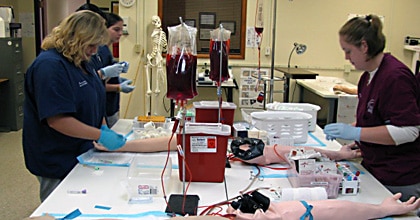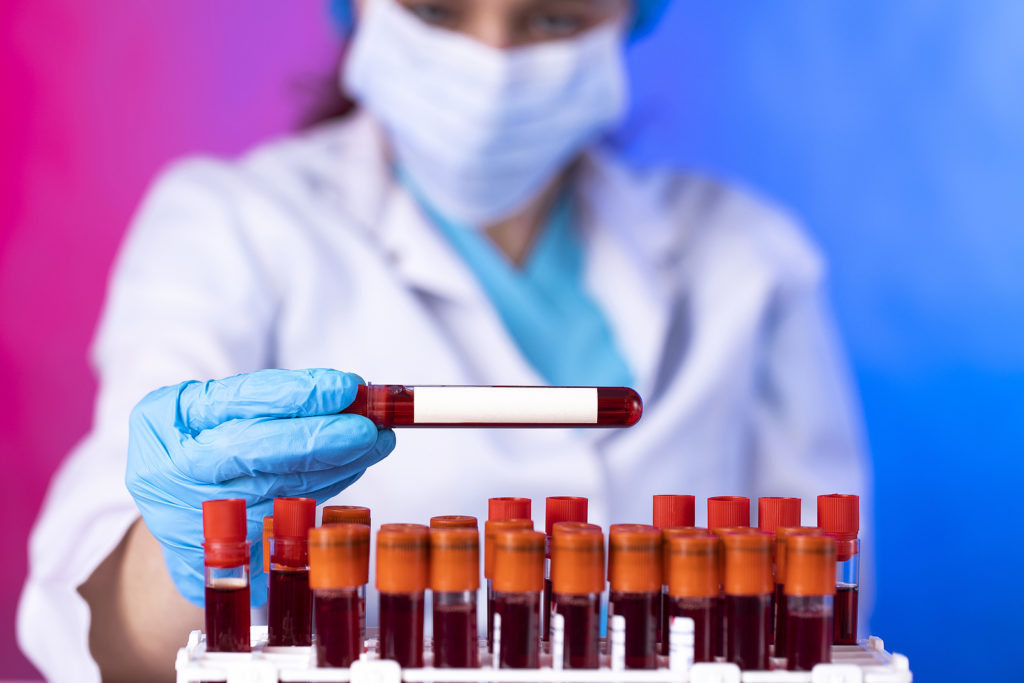Facts You Didn’t Realize About Phlebotomy Classes Near Me
Facts You Didn’t Realize About Phlebotomy Classes Near Me
Blog Article
The Path to Accreditation: Comprehending the Phlebotomy Educating Course Journey and Its Relevance
As you think about the path to accreditation in phlebotomy, it's crucial to recognize the function you'll play in healthcare. Your training will cover vital skills, from blood collection methods to patient communication.

The Role of Phlebotomists in Medical Care
Phlebotomists play an important duty in the medical care system, serving as the crucial web link in between people and important analysis screening. You'll perform blood draws, ensuring samples are gathered precisely and safely. Your competence assists in identifying clinical conditions, checking health and wellness, and assisting treatment decisions.
In your daily interactions, you'll require to develop count on with individuals, making them really feel comfortable during what may be a demanding experience. You are in charge of labeling and taking care of samples thoroughly to stop contamination or mistakes, which can impact test results.
Past this, you'll usually work along with physicians and nurses, communicating crucial information regarding people' conditions. By mastering your skills, you add meaningfully to individual care, making you a vital component of the medical team.
Introduction of Phlebotomy Training Programs
When exploring phlebotomy training programs, you'll locate different types made to fit various routines and finding out designs. Each program helps you create vital skills like blood collection and client communication. Understanding these alternatives is essential to choosing the ideal course for your career.
Kinds Of Training Programs
A number of kinds of training programs are offered for those looking to become proficient in phlebotomy. Furthermore, some hospitals and centers offer on-the-job training programs, offering useful experience while you discover. Whatever course you choose, each program aims to furnish you with the needed abilities for a successful phlebotomy career.

Trick Skills Created
Understanding phlebotomy calls for a set of key abilities that are established via extensive training programs. Furthermore, communication abilities are fundamental; you'll need to communicate with clients, discuss procedures, and put them at simplicity. Each of these abilities is crucial for your success as a certified phlebotomist, making you an important asset in any type of health care setup.
Trick Elements of a Phlebotomy Program
In a phlebotomy program, you'll focus on necessary subjects that lay the foundation for your future career. You'll take part in hands-on training that permits you to apply what you've found out in real-world setups. Both the curriculum and useful experience are essential for your success as a phlebotomist.
Core Curriculum Summary
While going after a phlebotomy training program, you'll experience a core educational program created to outfit you with essential abilities and understanding. Phlebotomy Courses Near Me. This curriculum normally includes composition and physiology, concentrating on the blood circulation system and recognizing blood components. You'll additionally find out about various kinds of blood collection methods, including venipuncture and capillary leak techniques
Additionally, infection control and safety methods are vital elements, ensuring you know just how to keep a sterilized environment. You'll examine patient communication, emphasizing interaction and empathy, which are crucial for relieving client stress and anxiety.
Hands-On Training Experience
Getting hands-on experience is an essential component of your phlebotomy training program. This sensible training enables you to use what you have actually learned in a real-world setup, boosting your skills and self-confidence. Phlebotomy Classes Near Me.
In addition, you'll get the chance to interact with people, which is necessary for creating your communication abilities. This mix of technical proficiency and interpersonal skills is crucial for your success as a qualified phlebotomist. Ultimately, hands-on training is where theory meets practice, solidifying your knowledge and readiness for certification.
Accreditation and Licensing Requirements
Before you can start your profession in phlebotomy, it is important to recognize the certification and licensing needs that differ by state. A lot of states need phlebotomists to hold a qualification from a recognized organization, such as the National Phlebotomy Organization or the American Culture for Medical Pathology. These accreditations normally involve passing a test that evaluates your understanding and abilities in the field.
In enhancement to qualification, some states have specific licensing needs. You might require to finish a particular number of hours in medical technique, submit evidence of training, or go through a background check. It is essential to investigate your state's laws to ensure you satisfy all necessary criteria.
Staying educated concerning these demands not just aids you protect a placement but likewise improves your trustworthiness as an expert. By fulfilling these discover this demands, you'll be well on your way to a successful career in phlebotomy.
Hands-On Training and Practical Experience
Hands-on training and practical experience are important components of your phlebotomy education, as they permit you to use academic understanding in real-world situations. During your training, you'll participate in supervised venipuncture, learn proper techniques, and become aware of different blood collection devices. This direct participation is important for building your confidence and developing your skills.
You'll work very closely with seasoned professionals that can assist you through the nuances of individual interaction and sample handling. Each practice not just enhances your understanding but also prepares you for the busy atmosphere of health care settings.
Furthermore, many programs include professional turnings, permitting you to experience diverse setups, from healthcare facilities to outpatient clinics. This direct exposure helps you adjust to different obstacles and individual requirements, ensuring you're well-prepared for your future function. Accept these opportunities, as they're necessary to coming to be an experienced and caring phlebotomist.
Difficulties Faced Throughout Training
While acquiring hands-on experience is vital, it is necessary to identify the obstacles that can arise throughout your phlebotomy training. You might run into anxiety when doing treatments on genuine patients, specifically if you're brand-new to the atmosphere. The stress to get everything right can be frustrating. In addition, grasping the abilities required for blood attracts takes practice; you might have problem with strategy at first.
Time management can my link likewise be a hurdle, as balancing concept, sensible sessions, and individual dedications can feel intimidating. You might deal with varying learning paces among your peers, resulting in feelings of insecurity if you think you're falling back. Ultimately, adapting to the various characters of instructors can be tough, as each may have a distinct training style.
Identifying these barriers at an early stage can prepare you for success and help you establish strength throughout your training journey.
Career Opportunities After Certification

As you acquire experience, you could also take into consideration concentrating on locations like pediatric or geriatric phlebotomy, dealing with certain client requirements. Some phlebotomists select to advance their jobs by becoming laboratory professionals or going after further education and learning in medical care areas.
Furthermore, your qualification can bring about functions in training or overseeing new phlebotomists, allowing you to share your knowledge. With the healthcare market continually growing, your skills will always be in need, leading the method for a steady and satisfying profession. Accept the opportunities awaiting you!
Often Asked Concerns
What Is the Typical Period of a Phlebotomy Training Course?
Phlebotomy training courses their explanation typically last around four to eight weeks. You'll engage in hands-on method, classroom direction, and online discovering. Finishing this training prepares you for certification and a rewarding profession in healthcare.
Are Online Phlebotomy Courses Available?
Yes, on the internet phlebotomy programs are readily available. They use flexibility and convenience, permitting you to research at your very own speed. Simply validate the program is certified to satisfy accreditation needs and acquire useful skills for your career.
Just How Much Does Phlebotomy Training Generally Expense?
Phlebotomy training generally costs between $700 and $2,500, depending upon the program and location. You need to think about elements like training course length, included materials, and hands-on experience when picking the right training for you.
What Are Common Prerequisites for Phlebotomy Training?
Usual requirements for phlebotomy training commonly include a secondary school diploma or GED, booster shots, and a background check. Some programs might also call for fundamental medical care understanding or accreditations, ensuring you're gotten ready for hands-on training.
Can I Function While Finishing My Phlebotomy Training?
Yes, you can function while finishing your phlebotomy training. Numerous pupils equilibrium work with their research studies, yet make sure to manage your time successfully to ensure you fulfill both work and training commitments successfully.
Report this page